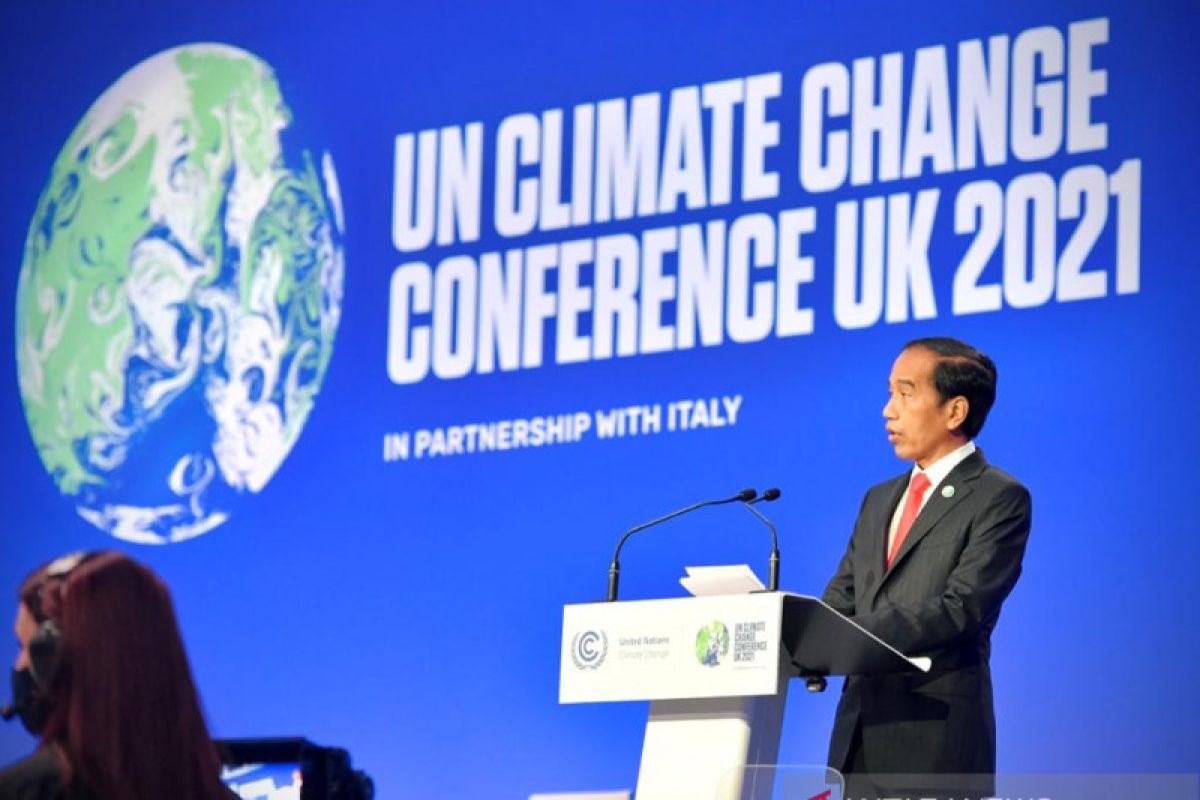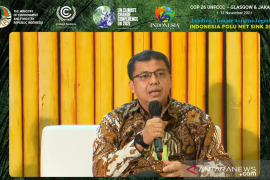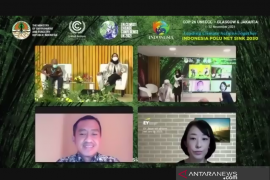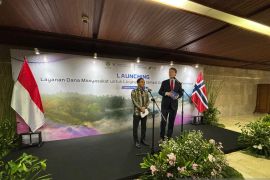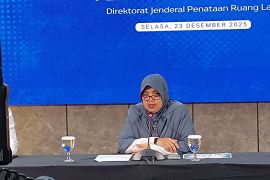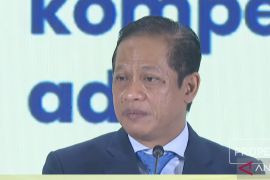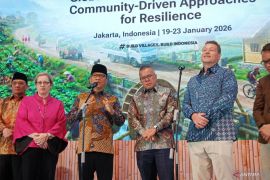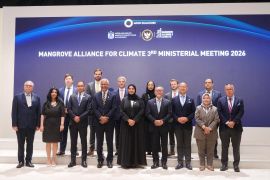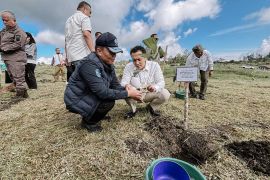Such a call was made by the Indonesian government at the opening of the Indonesian Pavilion at the COP 26 UN Climate Change Conference (UNFCCC) held in Glasgow, Scotland, as noted in a release issued by the Ministry of Environment and Forestry and received here on Tuesday.
"We call all countries to work together to save the earth. We could provide details on what we have achieved and set for the future goals. We will urge other countries to do the same," Indonesian Deputy Minister of Environment and Forestry Alue Dohong stated during his opening speech at the Indonesian Pavilion.
The Pavilion will open on November 1-12, 2021, during the COP26 event.
In his speech, Dohong stated that Indonesia had, so far, prioritized joint action involving various parties, including academics, private sectors, NGOs, and the community, in the climate change mitigation efforts.
Related news: COP26: Indonesia reiterates commitment to tackling climate change
Dohong highlighted the importance of this form of involvement since climate change cannot be mitigated by one party alone but must involve all stakeholders, who work together with the same vision.
Dohong also highlighted Indonesia's commitment to achieving long-term goals in climate change control and sustainable development.
As a contribution to controlling climate change, Indonesia has affirmed its target to reduce greenhouse gas emissions by up to 41 percent with international support in the updated Nationally Determined Contribution (NDC).
Indonesia has also planned to achieve the FoLU Net Sink by 2030, which means the absorption of greenhouse gas emissions from the Forestry and other Land Use (FoLU) sector is higher than the aforementioned 41 percent.
The FoLU sector is targeted to contribute nearly 60 percent of the total national emission reduction target.
Indonesia's both commitments are listed in the updated NDC document and Long-Term Strategies for Low Carbon and Climate Resilience 2050 (LTS-LCCR 2050), submitted to the UNFCCC Secretariat in July 2021.
Related news: Indonesia FoLU Net Sink 2030 helps prevent earth's temperature rise
Moreover, Deputy Minister Dohong noted that the most important aspect is to involve all parties in the efforts to control climate change.
"We have to take into account the potential emission reduction from the private sector to achieve the NDC. The NDC is not only the government’s responsibility, but it is also a responsibility to be shared by all," he remarked.
Dohong further drew attention to some of the major issues that Indonesia was still addressing: the completion of Article 6 of the Paris Agreement that regulates Cooperative Approaches concerning the use of carbon market mechanisms and non-carbon markets for the achievement of NDCs, the financing, and global adaptation.
At the high-level session at the Indonesia Pavilion, Minister of Finance Sri Mulyani also accentuated the importance of resolving Article 6 of the Paris Agreement. Completing Article 6 will also allow Indonesia's greenhouse gas (GHG) emission reductions to be absorbed by the international market.
Chairman of the Indonesia Pavilion, Agus Justianto, explained that joint action would be presented at the Indonesia Pavilion during the 75-panel sessions with 422 speakers. It will be held concomitantly in Glasgow and Jakarta.
Related news: Indonesia needs US$247 billion to achieve Paris Agreement's target
Reporter: Yuni Arisandy Sinaga
Editor: Suharto
Copyright © ANTARA 2021
